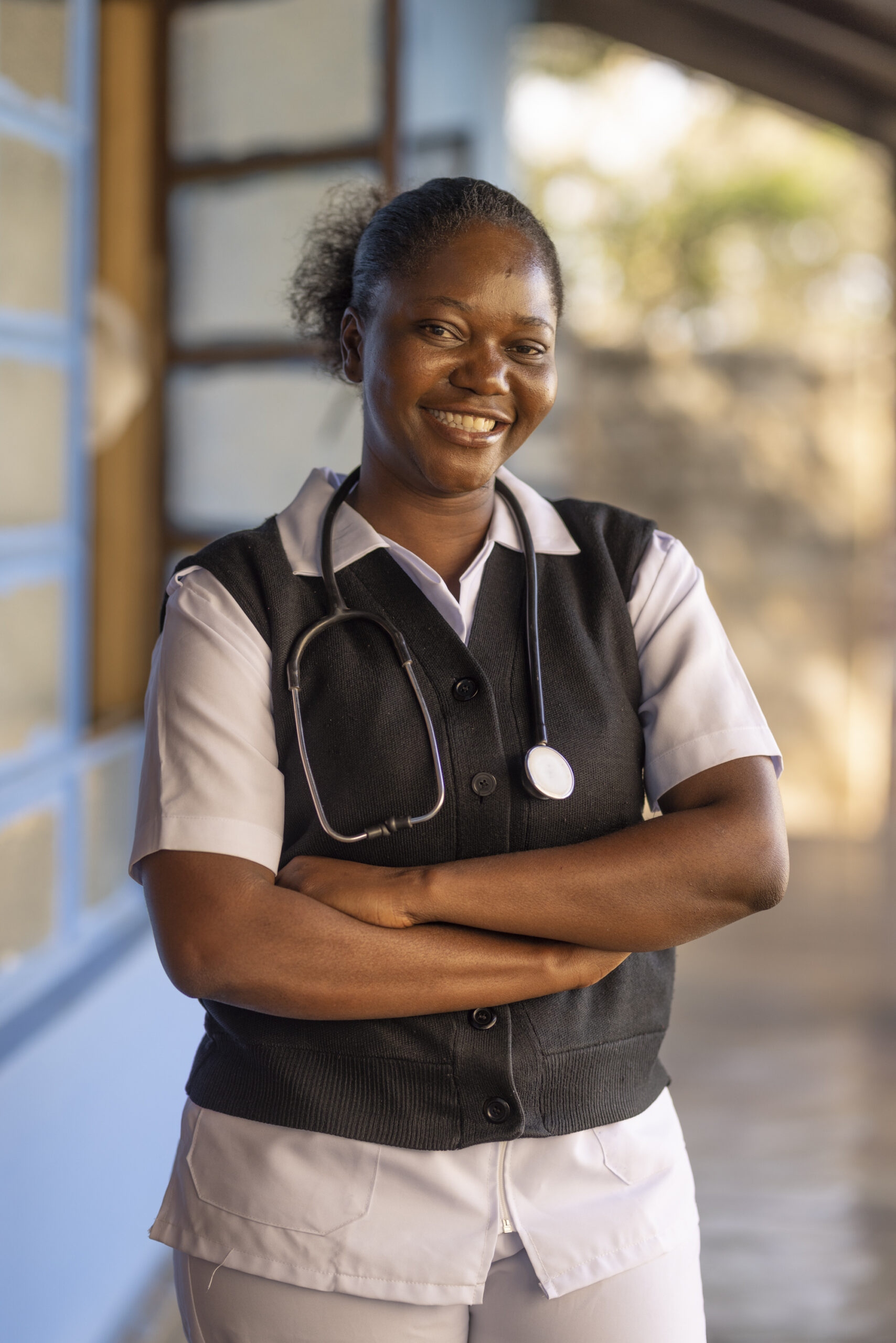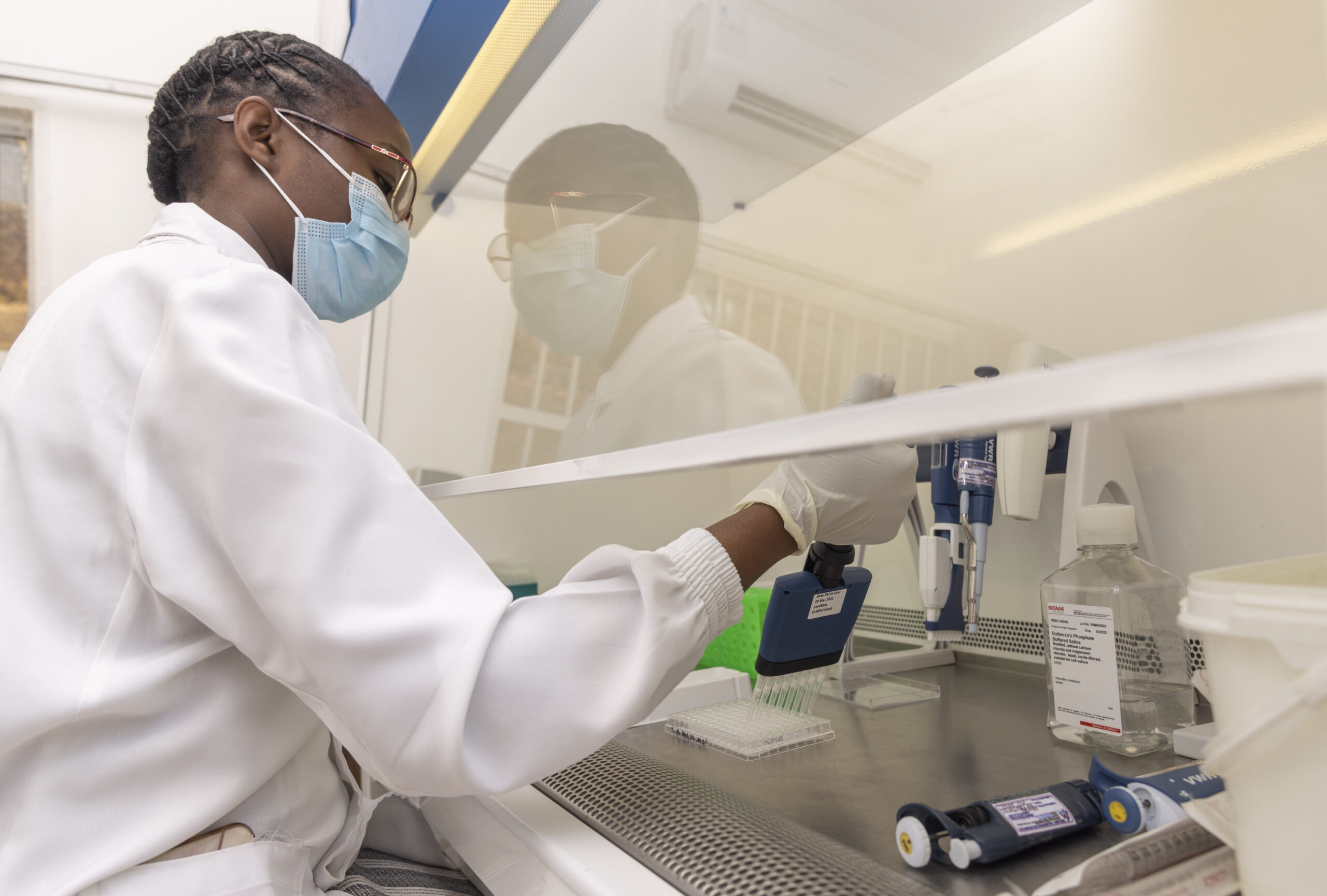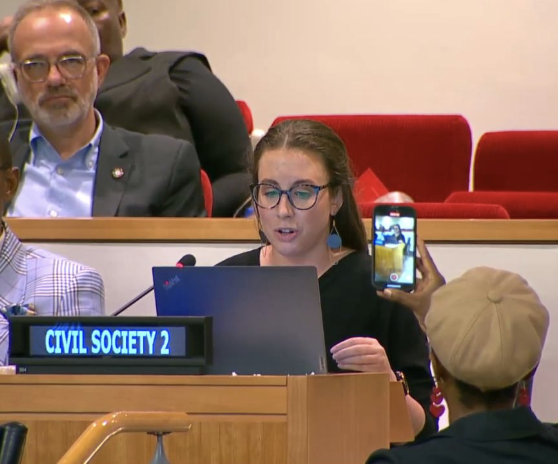At IAVI, we’re committed to raising the support we need to develop globally accessible vaccines and antibodies
We work with partners around the world to drive global health impact. We collaborate closely with our extensive network of partners, including civil society organizations, policymakers, scientists, activists, and community members, to ensure that the necessary resources and policies are in place to support the development of vaccines and antibodies.

We foster an enabling environment to make our work possible
This includes securing sustainable funding for global health research and development (R&D), influencing policies and regulations to support research from discovery to access, and collaborating with the countries and communities where we work. Our advocacy takes a disease-specific and cross-cutting approach that is needs-driven, rights-based, and evidence-informed in direct support of our mission. Together with our partners, we mobilize a comprehensive response to disease prevention while ensuring decision-makers have the information and evidence they need to make informed choices about supporting global health R&D.

We address regional realities and priorities to ending HIV, tuberculosis, and emerging infectious diseases
Our global hubs lead targeted advocacy toward governments and institutions in their regions with close collaboration across the organization. Our work has helped forge a path for the development of vaccines and antibodies for HIV, tuberculosis, and emerging infectious diseases to be health research priorities in many countries and regions where we work.

We engage at the global level to raise awareness and support for the field
IAVI participates in forums such as the United Nations, the World Health Assembly, the World Health Summit, and at the G20 through our membership of the G20 Health & Development Partnership, and we co-convene the annual Africa Health R&D Week. We co-lead the TB Vaccine Advocacy Roadmap (TB Vax ARM), a global coalition of TB stakeholders that seek to provide coordinated advocacy efforts in support of the TB vaccine agenda. IAVI also chairs the TB Roundtable, a coalition of TB advocates, implementers, NGOs, and professional associations committed to expanding and improving U.S. global health policy and tuberculosis programming.

We collaborate closely with communities to conduct safe and ethical clinical trials
IAVI’s careful and informed approach to community engagement is essential to conduct safe and ethical clinical trials in a way that avoids the potential for social harm such as discrimination, gender-based violence and stigma to study participants, especially the most vulnerable community members. The IAVI model for community engagement continues to demonstrate that many marginalized and vulnerable communities are accessible and, with careful outreach initiatives, are eager to participate in potentially lifesaving scientific research. Such work is essential for ensuring a fully informed and balanced representation of key populations in clinical trials.
Our people-centered engagement approach ensures that communities’ perspectives contribute to shaping the research; research literacy is enhanced as the science is demystified; and the application of social and behavioral research enables the research teams to design inclusive interventions that reflect participants’ lived experiences.
Discover our global hubs:
Check out the latest activities and resources:
- Subscribe below to IAVI updates
- T20 Policy brief: Investment Toolbox to Advance TB Vaccine Development through Joint Action
- IAVI Vaccine Literacy Library